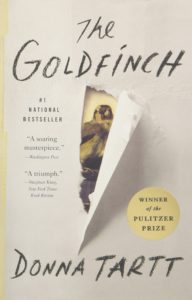Your cart is currently empty!

September’s Page Turner
 Page Turners
Page Turners
by Val Tobin
Agents and editors will often decide whether a book is right for them by reading the first page of the manuscript. Many readers also decide to buy a book based on that critical first-page sample. Each month I’ll post the first page of a book and you’ll vote on whether or not you’d read the book based on the sample.
After you vote, I’ll let you know the title of the book, my reaction to the sample, and why I’d keep reading or why I’d put it down. The goal is to have fun while we explore the beginnings of a variety of books and what compels readers to keep reading.
While I won’t divulge the title or author until you’ve read the piece and voted, I will include the genre and any preliminary items (for example, quotes) you’d see when opening the book on your own.
Today’s Excerpt
Genre: Literary Fiction/Coming of Age
The absurd does not liberate; it binds. – Albert Camus
Chapter 1: Boy with a Skull
While I was still in Amsterdam, I dreamed about my mother for the first time in years. I’d been shut up in my hotel for more than a week, afraid to telephone anybody or go out; and my heart scrambled and floundered at even the most innocent noises: elevator bell, rattle of the minibar cart, even church clocks tolling the hour, de Westertoren, Krijtberg, a dark edge to the clangor, an inwrought fairy-tale sense of doom. By day I sat on the foot of the bed straining to puzzle out the Dutch-language news on television (which was hopeless, since I knew not a word of Dutch) and when I gave up, I sat by the window staring out at the canal with my camel’s-hair coat thrown over my clothes—for I’d left New York in a hurry and the things I’d brought weren’t warm enough, even indoors.
Outside, all was activity and cheer. It was Christmas, lights twinkling on the canal bridges at night; red-cheeked dames en heren, scarves flying in the icy wind, clattered down the cobblestones with Christmas trees lashed to the backs of their bicycles. In the afternoons, an amateur band played Christmas carols that hung tinny and fragile in the winter air.
Chaotic room-service trays; too many cigarettes; lukewarm vodka from duty free. During those restless, shut-up days, I got to know every inch of the room as a prisoner comes to know his cell. It was my first time in Amsterdam; I’d seen almost nothing of the city and yet the room itself, in its bleak, drafty, sunscrubbed beauty, gave a keen sense of Northern Europe, a model of the Netherlands in miniature: whitewash and Protestant probity, co-mingled with deep-dyed luxury brought in merchant ships from the East. I spent an unreasonable amount of time scrutinizing a tiny pair of gilt-framed oils hanging over the bureau, one of the peasants skating on an ice-pond by a church, the other a sailboat flouncing on a …
Would you turn the page?
[democracy id=”1″]

Today’s Book Revealed
Today’s book is The Goldfinch by Donna Tartt.
Blurb from Amazon

WINNER OF THE PULITZER PRIZE
“The Goldfinch is a rarity that comes along perhaps half a dozen times per decade, a smartly written literary novel that connects with the heart as well as the mind….Donna Tartt has delivered an extraordinary work of fiction.”–Stephen King, The New York Times Book Review
Theo Decker, a 13-year-old New Yorker, miraculously survives an accident that kills his mother. Abandoned by his father, Theo is taken in by the family of a wealthy friend. Bewildered by his strange new home on Park Avenue, disturbed by schoolmates who don’t know how to talk to him, and tormented above all by his longing for his mother, he clings to the one thing that reminds him of her: a small, mysteriously captivating painting that ultimately draws Theo into the underworld of art.
As an adult, Theo moves silkily between the drawing rooms of the rich and the dusty labyrinth of an antiques store where he works. He is alienated and in love–and at the center of a narrowing, ever more dangerous circle.
The Goldfinch is a mesmerizing, stay-up-all-night and tell-all-your-friends triumph, an old-fashioned story of loss and obsession, survival and self-invention, and the ruthless machinations of fate.
Would I Turn the Page?
So, right off the bat, I’m going to muddy the waters.
Reading that sight unseen, I don’t feel compelled to turn the page. There’s a lot of description, and I find myself impatient, wanting to get to the story. The writing is lovely – very literary – but my mind wanders while I’m reading it, which doesn’t bode well for the upcoming reading experience.
Did I turn the page?
Yes, but for reasons that have nothing to do with my desire to find out what happens next.
I have a friend whose literary judgement I trust. After all, she holds a degree in literature and she turned me onto Michael Connelly and Ken Follett. The Goldfinch won the Pulitzer Prize, which makes me curious to read it and see if I agree with the choice. Also, glowing references to the book were ubiquitous, and I wanted to find out how well it lived up to the hype. And Stephen King, one of my favourite authors, says in his review that it’s extraordinary.
He’s correct. They’re all correct. It’s a good story. I almost made it all the way through. By the time I got to the last hundred pages, I stopped forcing myself to read every word and skimmed through the boring parts.
What makes a boring part in my mind? For me, it’s paragraphs of description. Give it to me straight and brief, and my imagination will do the rest. If it were up to me, that book would be about three hundred pages shorter and not lose anything of the plot.
Perhaps I have an attention problem. Maybe I’ve been hanging out online too much, watching too much television. Perhaps I’m expecting instant gratification and need to slow down and smell the virtual flowers and perfumes and wafts of cigar smoke lovingly and painstakingly described throughout. Or maybe I’m getting more efficient in my old age and have no patience for all that navel gazing.
What do you think?
Does this charm you? Intrigue you? Does it make you want to turn the page and continue reading? Will you run out now and buy the book? Borrow it?
Halfway through the first paragraph I was in. I recognized the book immediately but I also recall the first time I read it and the sensation of just wanting to sink down into the pleasure of reading such fine writing.
Many times while reading The Goldfinch I returned to the first page and reread it.
I like this game!
I thought this book illustrated well how subjective the reading experience is and was the perfect way to start off this blog series.
I loved this honest review of The Goldfinch, Val.
I read the book for the same reasons you mention (great reviews from friends I trust and authors I like), and had the same reaction to the first page (blah, blah, blah). And I also had the same experience three-quarters of the way through when I found myself skimming through the boring bits. There were a lot of boring bits. Like you, I asked myself if my attention span was to blame, if I was too used to instant gratification, or if the books I had otherwise been reading were too “easy.”
But I kept going back to Elmore Leonard’s famous writing advice (“try to leave out the part that readers tend to skip”). So I cut myself some slack, skimmed to the end, and promptly forgot about The Goldfinch. Pulitzer be damned!
Thanks for this great post!
Lynne, I couldn’t remember who said “try to leave out the part readers tend to skip,” but it crossed my mind as well. I struggled to read this book even as I wanted to find out what happened. Skimming resolved the issue. Funny how what some people find tedious others find captivating.
I found it boring. Barely finished the excerpt.
You should have heard me whining about it while I was reading it. I had more than one person ask me why in the world I continued to read it. Having said that, the story gripped me, and I wanted to find out what happened. I just wish it wouldn’t have been so unwieldy. Over seven hundred pages.
I would probably keep reading. I like the sense of impending doom the opening has.
Even after listening to my whining at the cottage when I was reading it?
No. Found the first line a put off:
“While I was still in Amsterdam, I dreamed about my mother for the first time in years.”
It told me nothing, and there is no real setup. The first person aspect would need work to me, for using “I” twice in the opening sentence tells me there’s going to be a lot of repetition. Would not have gotten my vote.
When I hit the second sentence (59 word run on) there is again repetition – my – and nothing to pull me into it. Yes, a little angst comes out, but nothing really to grab me beyond a desire to move to the next book.
Even the parts that should have been suspenseful dragged for me. I never thought I could be bored reading about an explosion in a public place. Apparently, I can.
The slow start, dark mood and overabundance of description turned me off.
okay maybe I’m slow but I’m confused…am I responding to the excerpt at the beginning of this page, about a man in Amsterdam or to the Goldfinch which I’ve heard about and have not read? I enjoyed Val Tobin’s description of making herself read it and how she believed it might have been shaved down. So many books like this!
But I don’t understand…sorry if my usual dyslexia around directions (NSEW) of any kind is at work here but I need help.
The poll within the post addresses the excerpt from The Goldfinch, asking if you’d turn the page and keep reading based on what you read. Otherwise, you may comment on anything at all about the post itself.
a fun game…looking forward to next month! thank you !
I wanted to read more but I really didn’t like the word probity as I don’t know want that means. Protestant probity. Does everybody else know what this is? It made me feel stupid. But I remembered being in Amsterdam myself years ago and that settled me into the story immediately. And of course you do visit the galleries there and stay in hotels so I felt an instant connection.
Probity isn’t a commonly used word. You probably weren’t the only one reaching for the dictionary on that one.
I didn’t know what it meant either. It didn’t make me feel stupid, it can make me lose interest in continuing to read. I read for entertainment. Simpler or clearer always trump. If the author makes too many (and sometimes 1 is too many) “complex” word choices when a simpler word could have been used, I bail. That being said, I assumed Protestant probity was a reference to some type of church or religious belief. It by itself didn’t throw me out of the narrative.
She could have used “morality” instead, but perhaps she thought probity was more specific. Oxford’s definition of probity: NOUN; formal; the quality of having strong moral principles; honesty and decency.